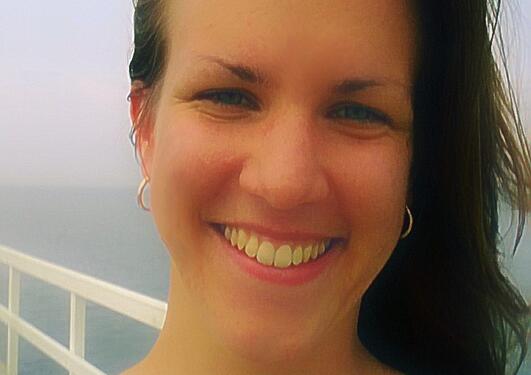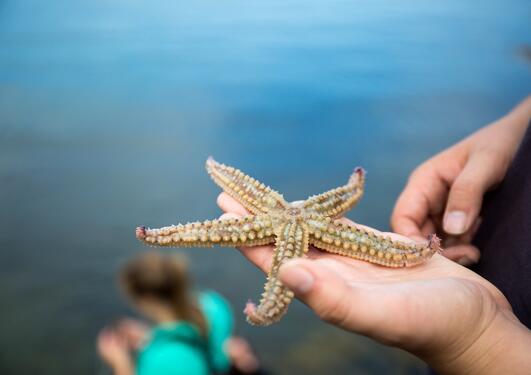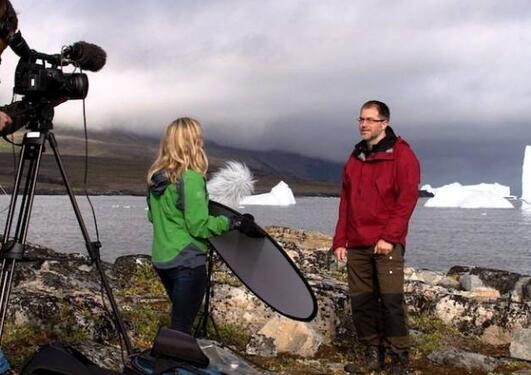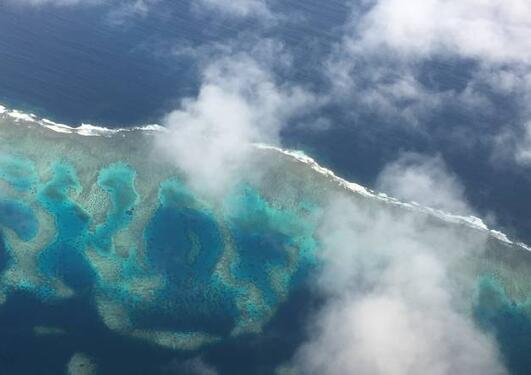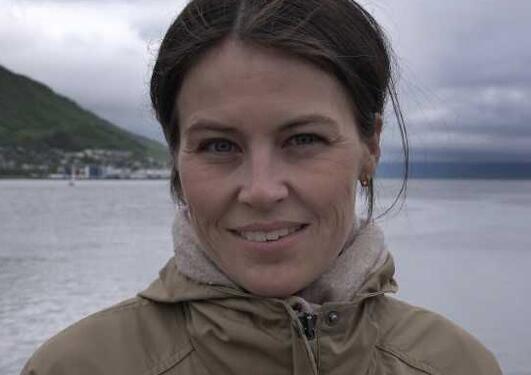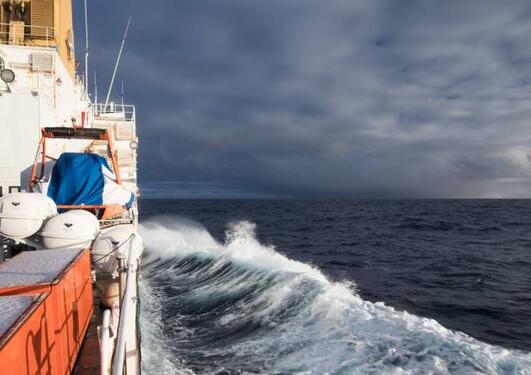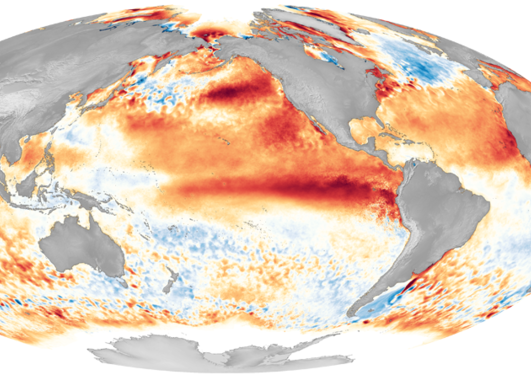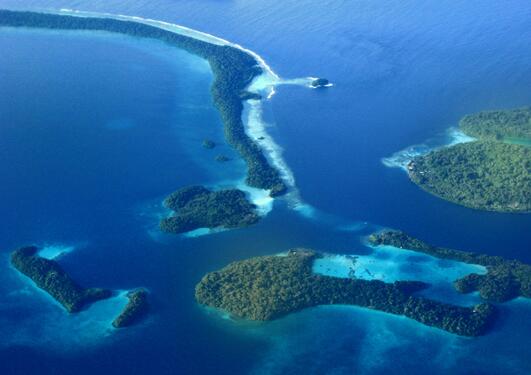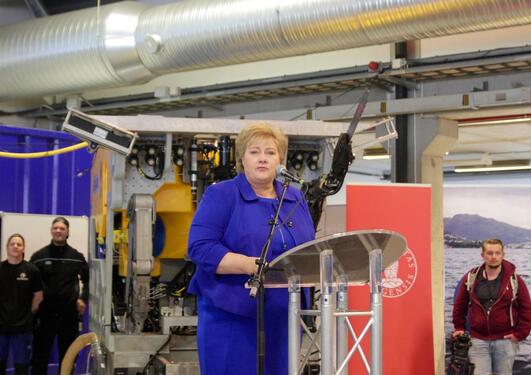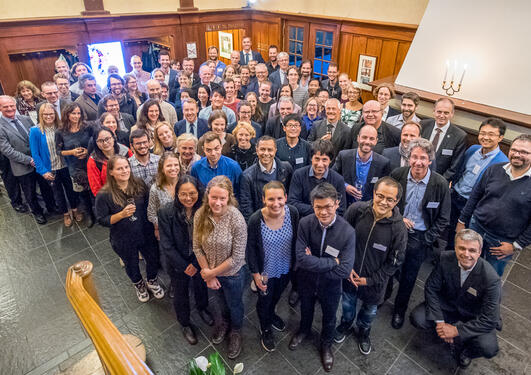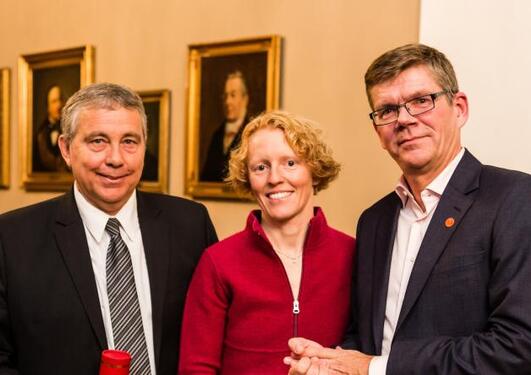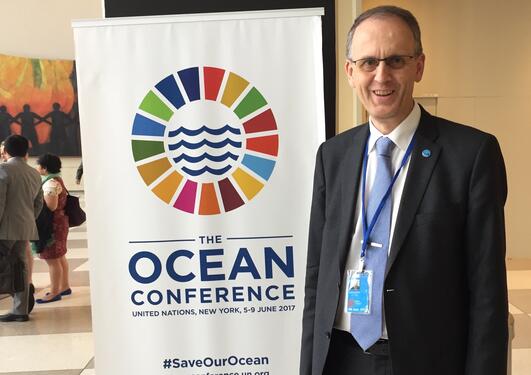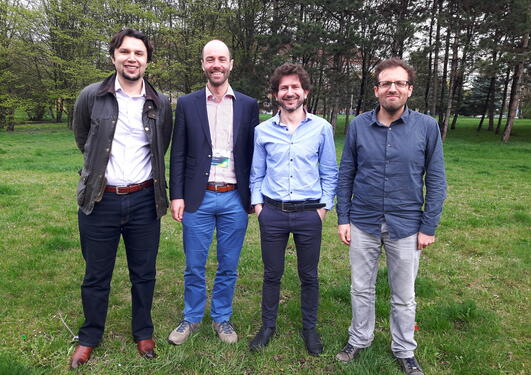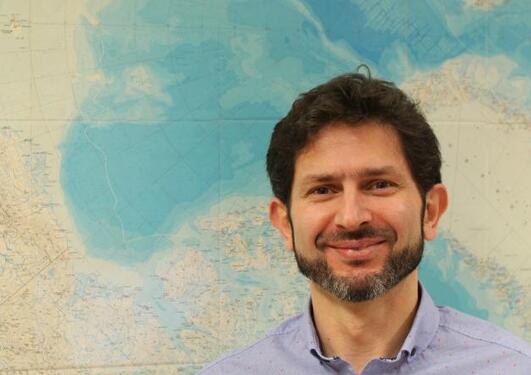News archive for Physical Oceanography
Algae do not live long, and the nutrient content of the water can change quickly. If you want to predict the primary production in the Barents Sea one or ten years ahead, it is more important to know the current conditions of temperature ocean currents, than the nutrient content in the ocean here and now.
The University of Bergen has taken on a leadership role on SDG 14, Life below water, for United Nations Academic Impact, and will act to inspire and motivate partners worldwide to create greater knowledge towards a sustainable ocean.
Three-week course in October guided by UiB and Bjerknes Professors.
The Bergen Offshore Wind Centre officially opened on 13 September. For the University of Bergen this is an important part of our contribution to society, according to Energy Director Kristin Guldbrandsen Frøysa.
Lea Svendsen was at first surprised to see how the Pacific impacted winter temperatures in the Arctic. Now, her results have been published in Nature Climate Change, while the Pacific transitions into a warm phase again.
The Arctic is about to shrink, shows a new study, as an important part of the Arctic Ocean shifts over to an Atlantic climate regime. The rapid climate shift occurs in the northern Barents Sea—the Arctic warming hotspot where the surface warming and loss of winter sea ice is largest in the entire Arctic.
With global warming, ocean circulation in the Atlantic Ocean is generally thought to weaken. New research shows that less sea ice off the coast of Greenland may work against this.
Sea surface temperature in the distant tropical Pacific can influence November weather in Europe.
Social anthropologist Edvard Hviding is one of three University of Bergen researchers to receive five years of major funding from the prestigious Toppforsk programme, awarded by the Research Council of Norway, for his project Mare Nullius.
Norwegian Prime Minister Erna Solberg has established an international high-level panel for a sustainable ocean economy. The University of Bergen looks forward to being part of this marine effort and contribute with scientific advice.
The Geophysical Institute is a hundred years in 2017. In October, the centenary was celebrated with a scientific symposium on climate, energy and geophysics.
On Fridtjof Nansen's birthday, Elin Darelius was awarded by the Fram committee for her polar science, shared with Jan Inge Faleide at UiO.
Professor Peter M. Haugan has long participated in high level work in the United Nations, building partnerships between science and diplomacy.
The distrution of a radioactive Thorium isotope is important in multiple aspects of oceanograpy. In his new single author publication, Yiming Luo has revisited the issue on processes influencing the distribution in the water column.
Climate change in the Arctic and the Antarctic was the topic when around sixty scientists from Japan and Norway gathered in Bergen this week.
Some scientists from GFI / BCCR contributed significantly to a MOSAiC Workshop at ASSW in Prague on 4 and 5 April.
The University of Bergen has success in the QS university rankings, based on subject areas. Within the category of marine research, the University of Bergen was named the 37th best in the world.
The German Society for Marine Research (Deutsche Gesellschaft für Meeresforschung, DGM) recently announced the recipient of the Georg Wüst Prize 2017. Congratulations Ilker Fer!
Pages
- August 2020 (2)
- January 2020 (1)
- November 2019 (1)
- October 2019 (2)
- August 2019 (1)
- July 2019 (1)
- June 2019 (1)
- May 2019 (1)
- April 2019 (1)
- March 2019 (2)
- February 2019 (1)
- January 2019 (2)
- December 2018 (2)
- November 2018 (1)
- October 2018 (1)
- September 2018 (2)
- August 2018 (1)
- July 2018 (1)
- April 2018 (1)
- March 2018 (1)
- February 2018 (1)
- January 2018 (1)
- October 2017 (2)
- June 2017 (3)
- April 2017 (1)
- March 2017 (1)
- December 2016 (2)
- November 2016 (1)
- May 2016 (2)
- November 2015 (1)
- October 2014 (1)
- June 2014 (1)
- December 2013 (1)
- October 2013 (1)
- September 2012 (1)
